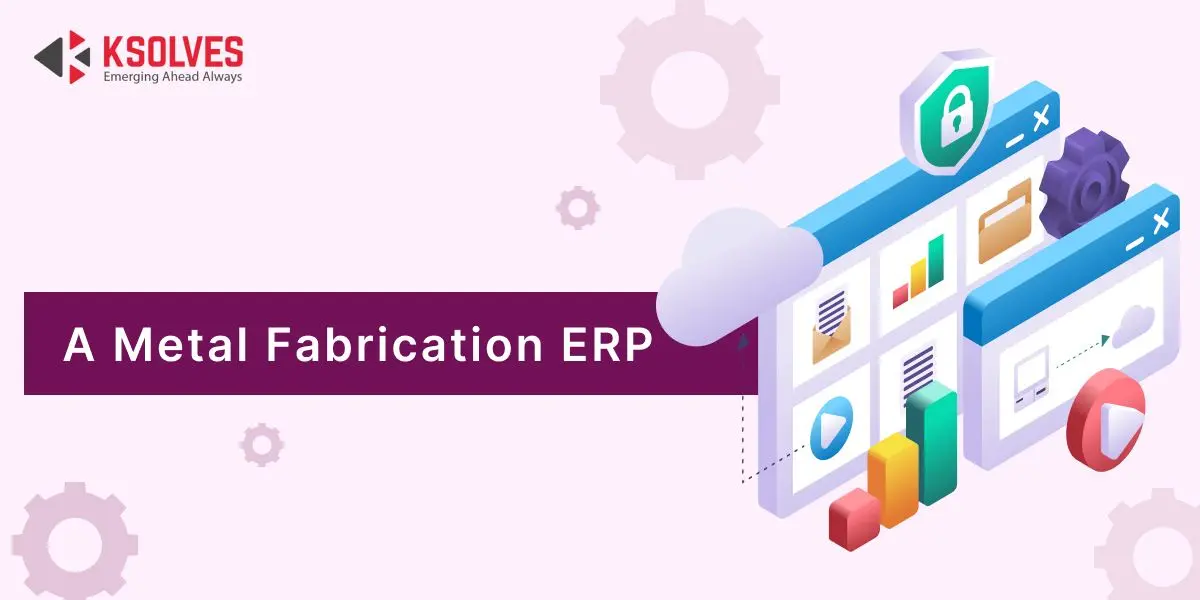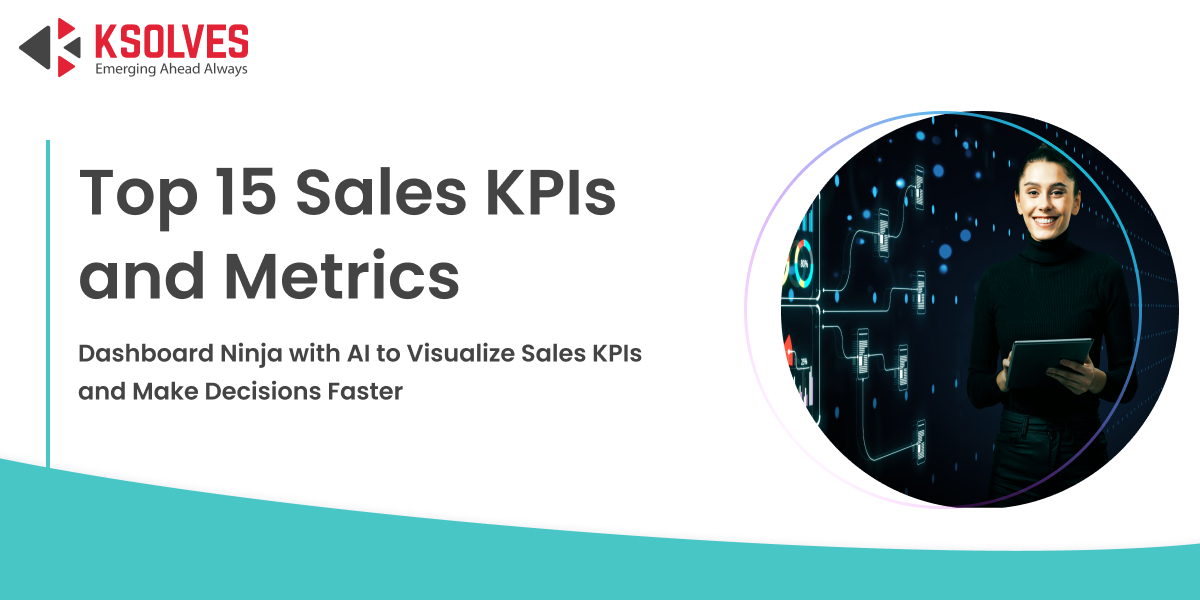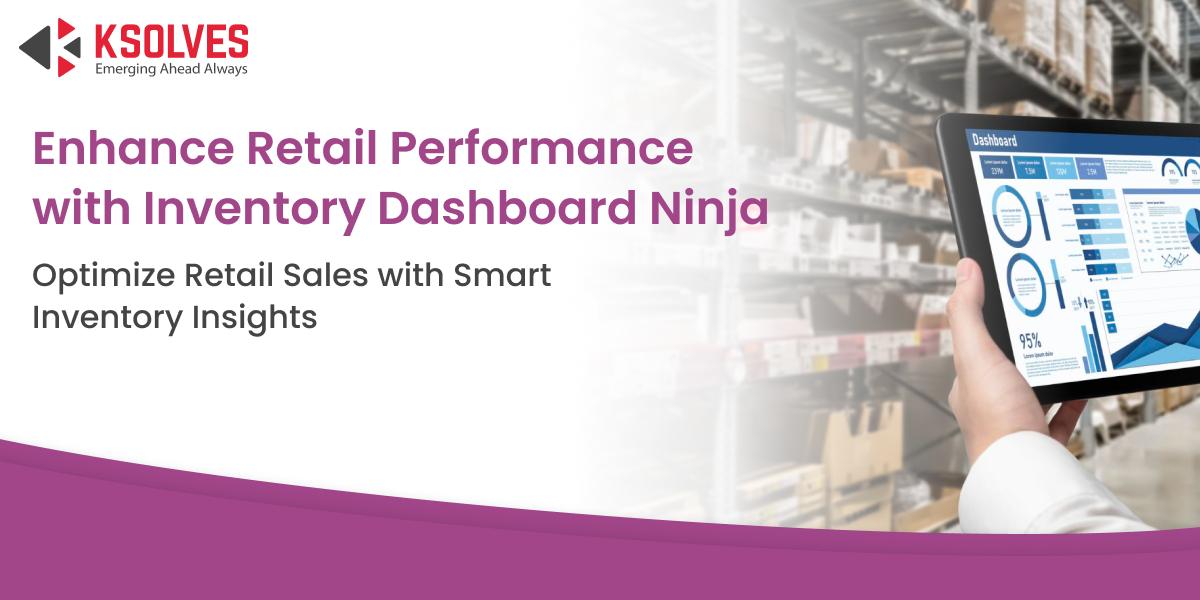Choosing an ERP Solution for Metal Fabrication Industries: A Definitive Guide
ERP
5 MIN READ
February 2, 2024
![]()

The production industry is highly characterized by precision and accuracy. It might be troublesome to be even a millimeter off the target. The alignment of fulfilling customer demands, skilled workforce, production schedules, and the availability of raw materials is indispensable for customer retention. This seems daunting, right?
Further, the constant increase in the prices of raw materials, the fluctuation of product demands, and the need for more skilled labor are major challenges that most metal fabrication companies face. These challenges serve as obstacles to their profitability.
Well, an ERP solution for metal fabrication industries can be a savior. Though it cannot control market trends, an ERP can certainly streamline day-to-day operations, ensuring high-quality output. It provides complete operational visibility and coordination across departments.
In this blog, we aim to introduce you to the benefits of using an ERP solution for metal fabrication industries. Further, we will enlighten you on some key features to look for in a metal fabrication ERP so that you can find one that best fits your business needs.
So, follow along!
What is a Metal Fabrication ERP?
ERP is an acronym for Enterprise Resource Planning. As a comprehensive software solution, organizations leverage ERP to manage day-to-day business operations, including accounting, resource management, supply chain management, risk management, and project management. It centralizes data from different departments, enabling teams to work together and quickly make actionable decisions.
Simply put, ERP integrates several business processes and enables the seamless flow of data between them.
A metal fabrication ERP is specifically designed to incorporate features that address major challenges faced by the metal fabrication industry. It serves as a centralized platform, allowing fabrication companies to manage all their business processes under a single roof. These processes include supply chain management, customer relationship management, resource management, workforce planning, risk management, etc.
With a metal fabrication ERP solution, companies can refine their planning, improve efficiency, increase speed to market, reduce waste, and cut costs. It integrates sales, production, inventory, quality, and fulfillment data and provides real-time visibility and improved coordination across the teams.
Benefits of Using an ERP Solution for Metal Fabrication Industries
As already discussed, the metal fabrication industry requires high precision and attention to detail and has no chance for errors. Plus, multiple stages involved in metal fabrication manufacturing make room for bottlenecks and inefficiencies. Hence, manufacturers are increasingly shifting to ERP solutions to integrate and automate all key processes, from quoting and inventory management to production.
Some noteworthy benefits of using an ERP solution for metal fabrication industries are:
- High-Quality Output: ERP manages every aspect of metal fabrication manufacturing, from quoting to production. This enhances the output quality and increases the product’s time to market.
- Precise Quote Generation: Generates precise quotes, allowing companies to deliver products to customers on the committed time.
- Eliminates Team Silos: Eliminates the silos between teams by centralizing operations and reducing redundant processes.
- Meets Varying Customer Needs: The ERP solution adapts to ever-evolving customer requirements and demands throughout production. This ensures maximum customer satisfaction.
- Improves Business Agility: Increases business agility by providing teams with 360-degree visibility of operational data in real time.
- Enhances Equipment Efficiency: ERP groups tasks based on their tooling needs rather than their arrival order. This significantly reduces changeovers and ensures that all components are manufactured in compliance with industry standards.
- Automation: Automation is the foremost feature of any ERP solution. It automates repetitive and mundane tasks, allowing employees to focus more on other high-value tasks and reduce manual errors.
- Quality Control and Regulatory Compliance: Keeps track of supply chain, production, and distribution to ensure quality control and regulatory compliance.
8 Must-Have Features in an ERP Solution for Metal Fabrication Industries
The following are a few standard features a metal fabrication ERP should incorporate to provide great value to businesses:
1. Estimates and Quotations
An ideal ERP solution should have a feature to record customer enquiries, create estimates of the bill of materials (BOM) for each enquiry, and generate detailed quotations. It should generate accurate quotations based on material needs, labor requirements, and overheads.
ERP automates this daunting process of quotations and estimates, which would consume a lot of time if done manually.
An open-source ERP, Odoo, comes with a Sales module that lets you create estimates and quotations within no time. It automatically performs cost calculations based on predefined factors, such as material costs, labor costs, etc., and provides accurate quotations to customers.
2. Order Management
An ERP solution with order management should allow users to efficiently manage customer orders and get real-time visibility into each order’s status. Furthermore, it should bridge the gap between sales, production, and fulfillment teams to ensure effective communication throughout production. This helps improve order accuracy and lead times as all teams receive timely updates on order progress.
With Odoo’s Inventory module, you can ensure efficient order management. Dedicated dashboards allow you to centralize fulfillment, purchasing, picking, and packing data. Teams can then prioritize orders with the earliest deadline to ensure timely delivery.
3. Bill of Materials (BOM)
The bill of materials (BOM) feature comes in handy if metal fabrication companies outsource their work on subcontracts to other companies. A Bill of Materials (BOM) is a list of all materials, components, and subassemblies required to manufacture a final product.
A built-in BOM feature enables companies to describe and organize various elements involved in the manufacturing process. Subcontractors or vendors can easily access the information related to each element, such as specifications, quality, cost, and quantity.
Odoo 17 Manufacturing for the metal industry has a BOM feature, which lets you create BOMs on multiple levels and keep track of materials required for production.
4. Engineering Change Management
Customer requirements are vague in nature; they keep changing throughout production. Hence, it becomes essential for companies to adapt to these ever-evolving changes to ensure customer retention.
Changes in customer requirements result in changes in various manufacturing aspects, such as product designs, BOMs, etc. Communication plays a crucial role in managing engineering changes. As a result, an efficient ERP solution should provide a feature ensuring effective communication across different departments. Plus, it should be able to uncover areas requiring change management and offer features to implement those changes swiftly.
Odoo’s Product Lifecycle Management (PLM) module leverages an enterprise social network to enable collaboration between different departments of your organization.
Additionally, integrated document management streamlines the process of passing changes to manufacturing with the help of alerts on worksheets. Attaching the latest version of documents with changes to BOMs, routing, and wherever needed is straightforward. Every department has access to documents, ensuring anyone within an organization can track changes across multiple versions.
5. Workload Scheduling
Workload scheduling involves planning production activities based on the availability of raw materials and equipment capacity in real time. It involves allocating tasks to available resources and visualizing the production schedule to uncover bottlenecks. This helps companies meet production deadlines and boost efficiency.
The Odoo Manufacturing module allows you to schedule manufacturing orders and plan resources. The Gantt Chart provides a clear picture of your entire planning process, and you can reschedule manufacturing if needed. Plus, access to all available resources enables you to plan your production further.
6. Material Requirements Planning (MRP)
Material requirements planning (MRP) is a useful feature for determining the exact material requirements to reduce waste and manage expenses. Its primary objective is to ensure the desired materials are available for production.
Further, companies combine MRP data with other data, such as machine workload capacity and workforce availability, to conduct efficient operations.
Odoo Manufacturing combines MRP, MES, PLM, quality, shop floor, and maintenance under a single frame. It lets you simulate manufacturing orders with real-time capacity planning, cost control, and component availability. This simulation leads to informed decisions about resource allocation and utilization, production, and supply chain management.
Moreover, you can use the MRP scheduler to schedule work at each work center based on its capacity.
7. Routing and Activity Planning
Each metal fabrication order is different and has unique requirements. Plus, it has to be shipped to a particular location. As a result, every order requires well-defined planning for resources, materials, input, and output based on specified requirements.
An efficient ERP solution plans activities and determines and describes optimized routes for each order.
Odoo’s Inventory module has a feature called Advanced Routes, where you can set up routes catering to different shipping methods (post-office, third-party, shipping, etc.). In addition, you can create custom routes to transfer to, from, and between warehouses.
8. Dispatch & Invoicing
ERP should be able to handle the dispatches and shipping activities, like generating packing and shipping lists, documentation for shipping and customer clearance, etc. Also, it should generate accurate invoices for products that are ready to be shipped.
Odoo’s Sales module manages product dispatch and shipping efficiently, while the Accounting module handles seamless generation of invoices. Together, these modules work to ensure timely order fulfillment, improve cash flow, and maximize customer satisfaction.
Conclusion
The benefits of implementing an ERP solution for metal fabrication industries are manifold. However, the foremost benefit is the centralization and optimization of business processes. ERP centralizes data and provides an integrated view of all business processes, ensuring 360-degree operational visibility. This, in turn, results in enhanced productivity, reduced waste, lowered costs, improved decision-making, and efficient management.
Odoo is an open-source ERP that comes with modules or apps catering to the needs of the metal fabrication industry. Its Manufacturing, Accounting, Inventory & MRP, and Sales modules offer features that automate business processes and operations and ensure seamless accounting & financing management and efficient inventory management.
At Ksolves, we have a team of experienced and highly trained Odoo professionals who offer unparalleled Odoo development services. Whether it is Odoo implementation, Odoo migration, Odoo integration, or Odoo customization, our experts are always up to help you achieve efficiency and effectiveness in your Odoo. Furthermore, our Odoo consultancy service connects you with experienced Odoo consultants who understand your needs and design a high-end solution for your business.
![]()






Author
Share with